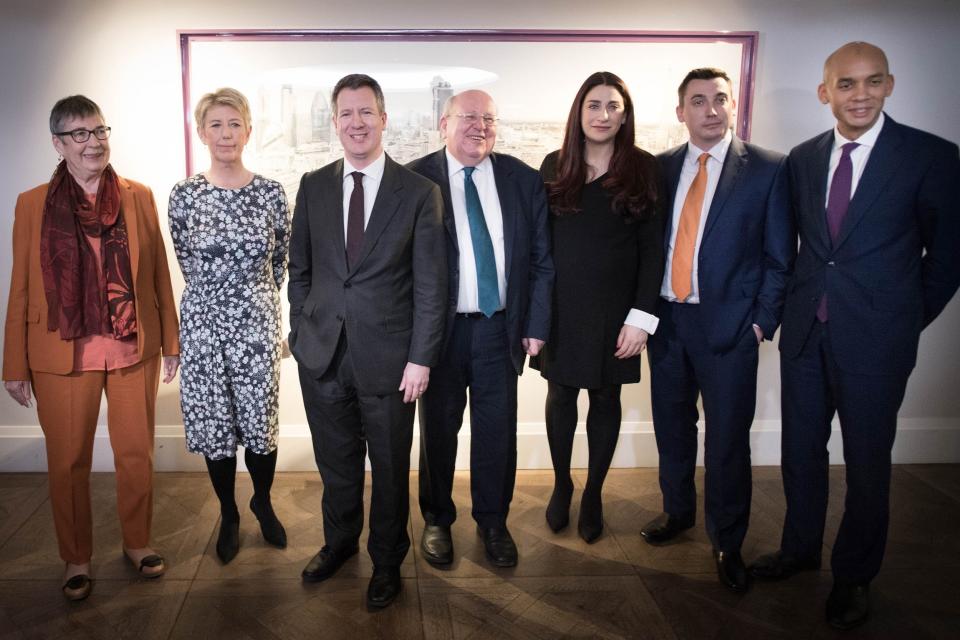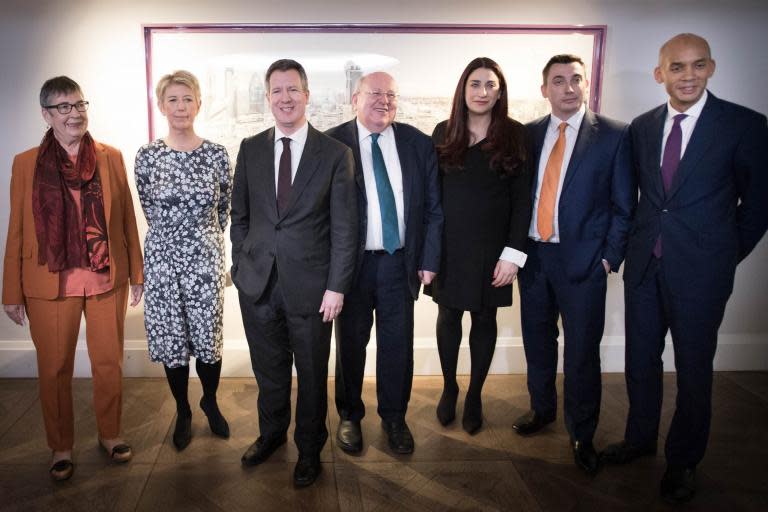The defectors were wrong to resign – but that doesn't mean Labour doesn't have problems
Last night Joan Ryan was the eighth Labour MP to defect to the new Independent Group on Monday. This will not help the Labour Party. No doubt, some of what they had to say about the way the party has been run recently was justified, but criticism on its own is not enough. Complaining about Brexit and anti-semitism is all very well, but where is their positive vision for the future? What has anyone on the left got to say about this?
With or without the eight defectors, the Labour Party in the UK has a problem at the ballot box. Despite all the divisions and disarray in the Conservative Party, Labour is still some 7 per cent behind in the polls, and there is little sign that a more moderate version of the present Labour Party would do much better than the one which we have at the moment.
Right across the West, social democratic parties have lost elections over the last few years and are now in opposition. It is actually the left-of-centre parties with more radical programmes, such as Labour in the UK, the Bernie Sanders wing of the Democratic Party in the US, and Jean-Luc Mélenchon’s La France Insoumise Party that are picking up supporters. Their problem, however, is whether they have a broad enough agenda to get themselves elected.
Why are left-of-centre parties not doing better? Surely a large part of the problem is that they are not concentrating on the issues which really attract interest from the working-class supporters to whom they need to appeal. The left is chronically short of policies which will deal effectively with empty factories, wage stagnation, deindustrialisation, wider and wider gaps between London and the regions, lack of jobs and housing opportunity for young people, and rising wealth inequality.
Instead, there has been far too much concentration on matters which mobilise the metropolitan elite much more than working-class people – issues such as identity, gender, race equality and even anti-semitism. These concerns may pile up votes for Labour in London and other university towns, but at the expense of losing vital marginal seats in Wales, the Midlands and the North where voters are much more concerned with bread and butter issues.
The left needs to worry more about investment and growth and less about how to divide up the cake. The reason it has lost support is because it has not been good at running the West’s economies as growth rates have fallen. It needs to pay much more attention to its grassroots supporters who are struggling and less to its middle-class adherents who may be better educated, more middle class, more internationalist and more idealistic but may also be dangerously out of touch with what really matters to most working people.
John McDonnell has promised that the Labour Party will carry out a major listening exercise to help to avoid further defections. It needs to do so, and to pay attention to its results, which may not be what its metropolitan leadership or membership always want to hear.
To win elections, Labour needs to consist of an alliance between the middle-class idealists and more pragmatic C1 and C2 working-class supporters. If Labour panders too much to metropolitan as opposed to regional concerns, this bond will continue to fray and Labour will never get re-elected.
I have been a Labour Party member for nearly 60 years and I have no intention of moving on anywhere else. I do, however, want to see the party shifting its focus to getting back into power based on a programme which will create our capacity to raise living standards for everyone, backed up by better-funded public services. We have a long way to go to explain how we are going to create the resources to make this happen.
John Mills is Chairman and founder of JML, the consumer goods brand and TV shopping channel. He is also a Labour Party activist and donor.

 Yahoo News
Yahoo News 

